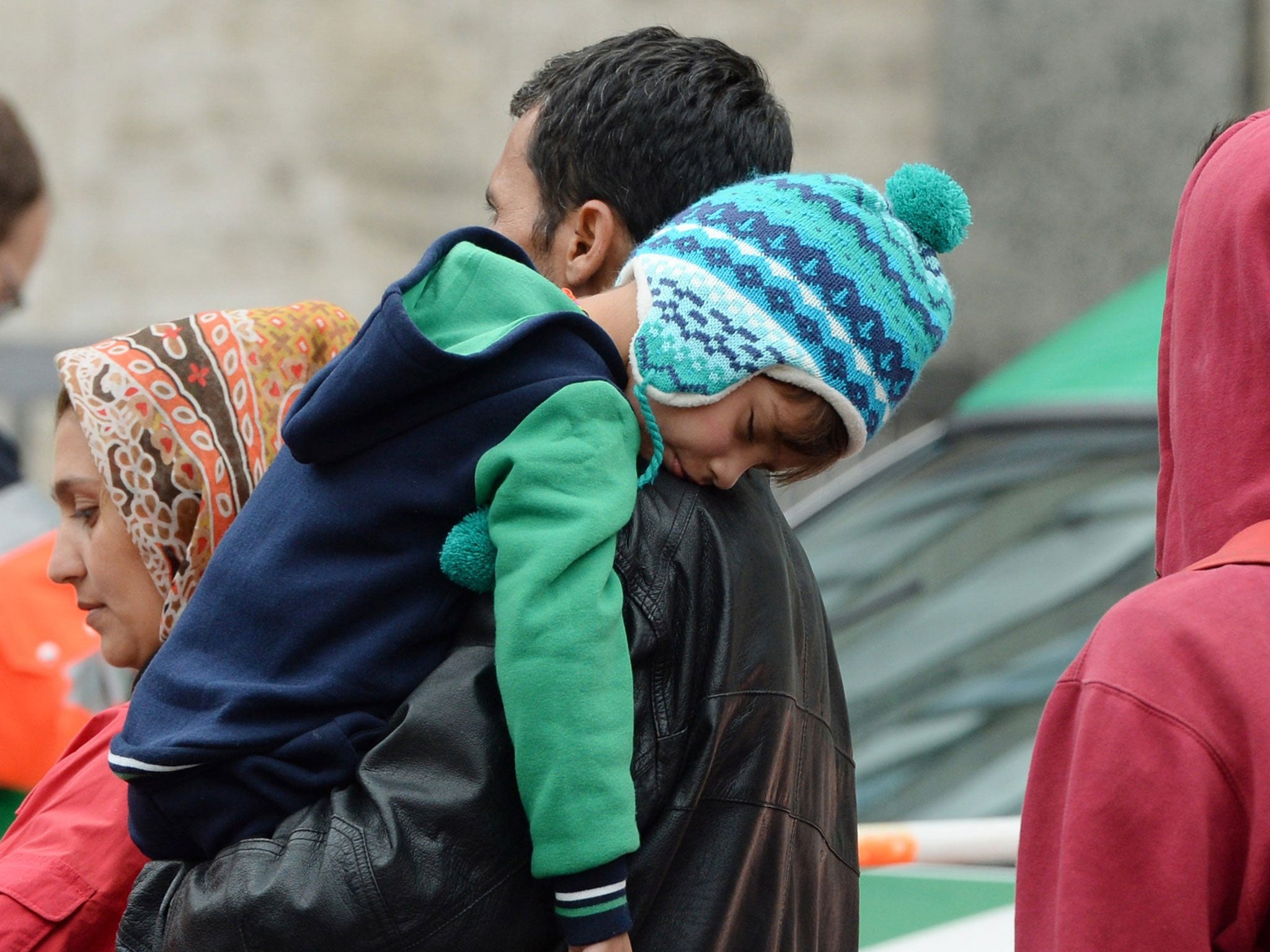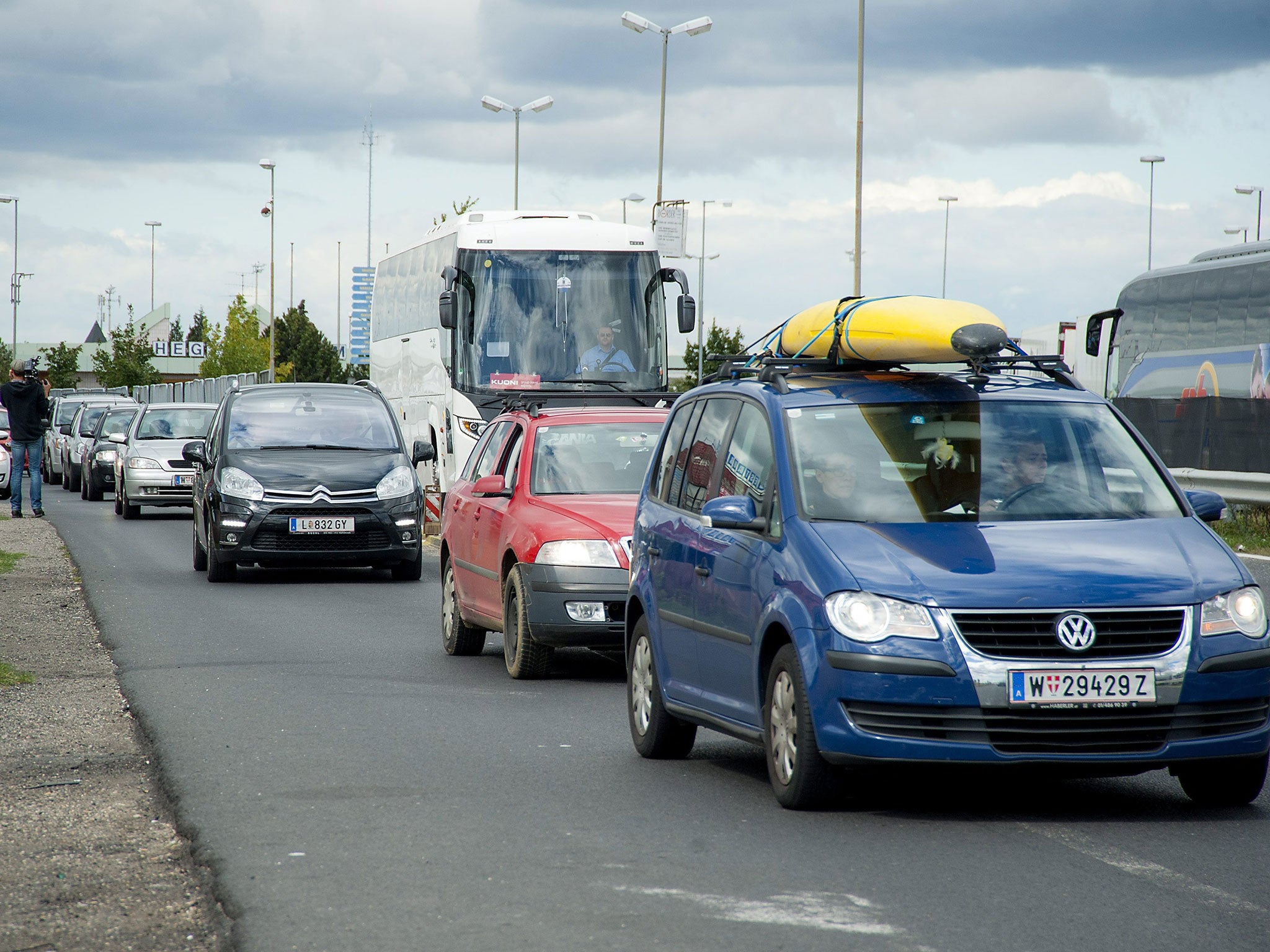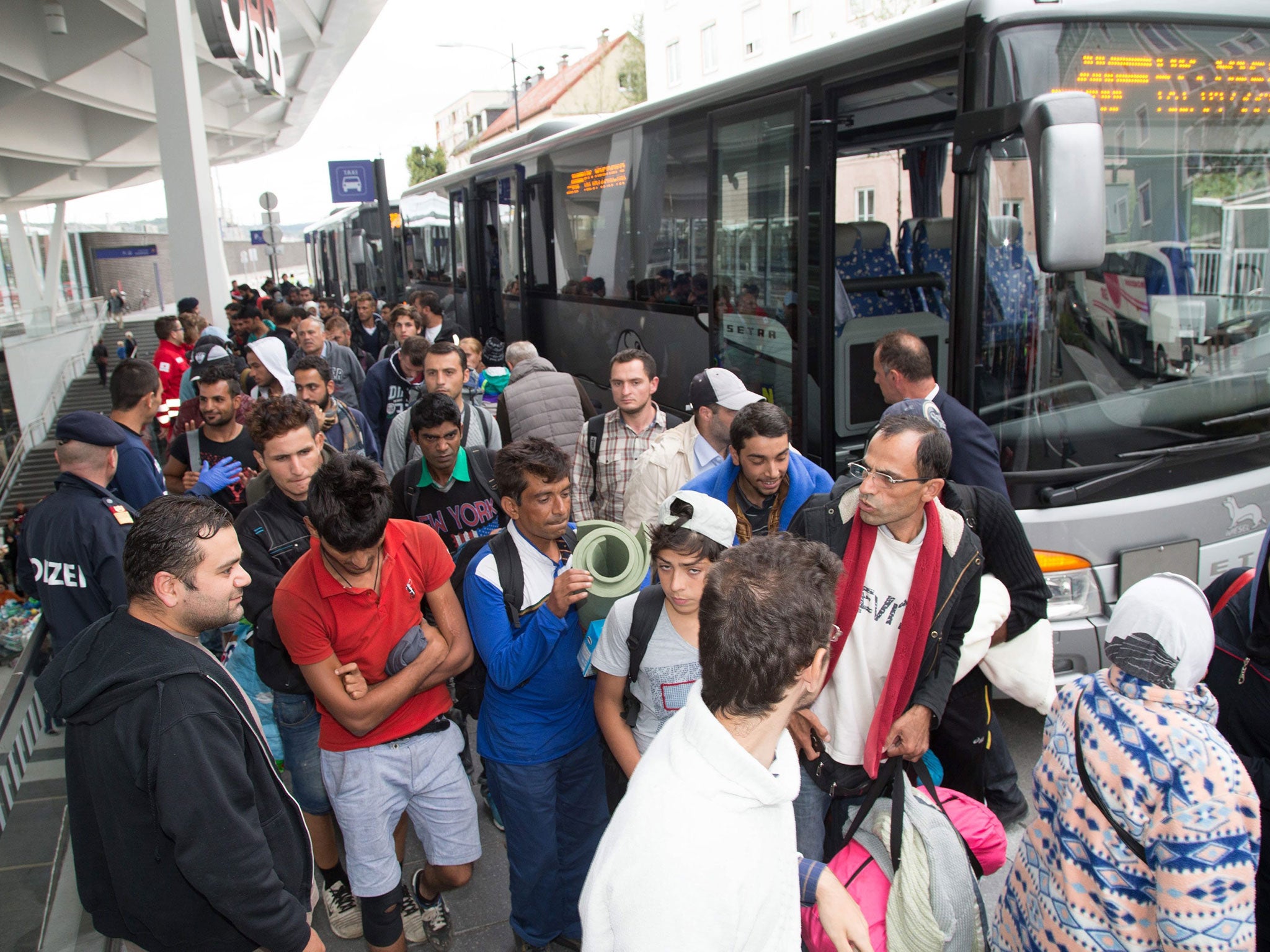Austria to close borders to refugees again after 12,000 arrive from Hungary in just 48 hours
The Austrian chancellor, Werner Faymann, says emergency measures will be lifted

Your support helps us to tell the story
From reproductive rights to climate change to Big Tech, The Independent is on the ground when the story is developing. Whether it's investigating the financials of Elon Musk's pro-Trump PAC or producing our latest documentary, 'The A Word', which shines a light on the American women fighting for reproductive rights, we know how important it is to parse out the facts from the messaging.
At such a critical moment in US history, we need reporters on the ground. Your donation allows us to keep sending journalists to speak to both sides of the story.
The Independent is trusted by Americans across the entire political spectrum. And unlike many other quality news outlets, we choose not to lock Americans out of our reporting and analysis with paywalls. We believe quality journalism should be available to everyone, paid for by those who can afford it.
Your support makes all the difference.The Austrian chancellor has indicated that the country could begin closing its borders again after two days of unprecedented refugee arrivals from eastern Europe.
Werner Faymann said that emergency measures agreed by Austria and Germany to accept large numbers of refugees from Hungary should be lifted “gradually”.
Bavarian state officials have said that a total of 6,800 refugees entered Germany via Austria on Saturday, with another 5,000 expected on Sunday.
In a statement following what he described as “intensive talks” with Germany’s Angela Merkel and a telephone call with the Hungarian prime minister Viktor Orban, Mr Faymann said: “We have always said this is an emergency situation in which we must act quickly and humanely.
“We have helped more than 12,000 people in an acute situation. Now we have to move step by step away from emergency measures towards normality in conformity with the law and dignity.”
Around 700 who were able to get on board two trains to Munich were welcomed early on Sunday by a dozen or so volunteers handing out chocolate. More were expected later, a regional official said, and most were given medical checks before being taken to reception centres.


Many more crossed the border by other means, and the Hungarian government put on around 100 buses to help get people to the Austrian border. A convoy of around 140 cars and vans filled with food and water left Vienna on Sunday to provide for the column of marchers, and collect those less able to walk.
Munich’s mayor, Dieter Reiter, said on Sunday that he was not worried about the numbers arriving in the city – only “how can we give them a feeling that they are safe here”.
But even in a city which has been among those most praised for its positive reaction to the influx of refugees, concerns were being raised.
Simone Hilgers, a spokesperson for the authorities in Upper Bavaria, Germany’s largest state, told the Associated Press: “Munich and Bavaria can't manage it alone. [We] need the support pledged by other [German] states.”
Germany alone expects to receive 800,000 refugees by the end of 2015 – roughly 1 per cent of its population, and by far the greatest contribution to the crisis from any EU member state.
The numbers arriving in Europe are nonetheless a relatively small proportion of the four million estimated to have fled Syria since its civil war began in 2011, amid warnings that millions more could be displaced.
On Sunday, Pope Francis said that the Vatican would do its bit, taking in two families of refugees – a similar commitment to Germany’s considering the city-state’s tiny number of citizens. He urged “every parish, every religious community” across Europe to do the same.
Join our commenting forum
Join thought-provoking conversations, follow other Independent readers and see their replies
Comments